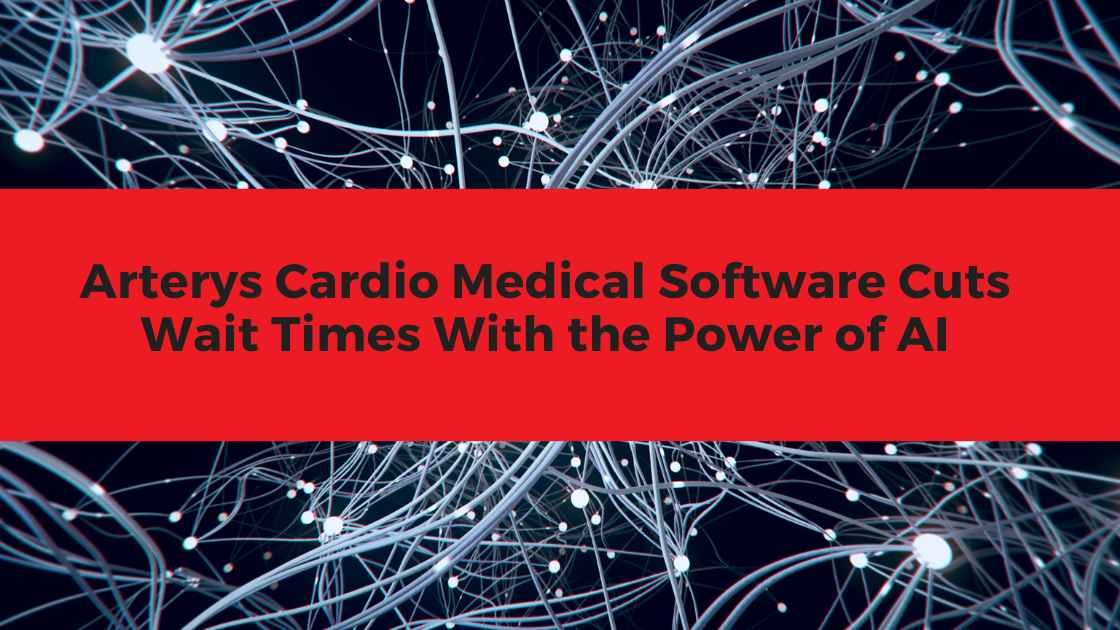Arterys Cardio Medical Software Cuts Wait Times With the Power of AI
Arterys Cardio DL, an FDA-approved software, drastically shortens cardiac magnetic resonance imaging (CMR) result wait times for patients and promises to solve numerous other healthcare challenges. Read on to learn more about Arterys and it’s revolutionary AI-powered capabilities in healthcare.
Arterys Revolutionizes Healthcare Technology
Arterys Cardio DL, by Tempus, is a cloud-based solution that interprets CMR images before a patient even leaves the table. What used to take a radiologist 30 minutes can now be accomplished in mere minutes, as noted by Ali B Syed, M.D., from Stanford School of Medicine’s Department of Radiology.
Purpose of Arterys Cardio DL
Imaging technology is crucial in healthcare for treating and diagnosing, especially in modern clinical care. MRI scans are noninvasive diagnostic tests that capture detailed images of the body’s soft tissues, such as heart muscle and breast tissue. Arterys focuses on CMR by using deep learning (DL) algorithms to assess and analyze heart scans.
Arterys in Simple Terms
Essentially, this platform uses computers trained to process data like a human brain. Specifically, it provides radiologists with automated ventricle segmentations, dividing the heart into distinct groups such as muscle and hollow spaces where blood flows (ventricles). This platform significantly reduces the time radiologists spend reading MRI scans, saving them hours daily.
FDA Approval of Arterys
Arterys received FDA clearance on January 9, 2017, becoming the first FDA-approved medical imaging analytics cloud software with deep learning capabilities. The FDA approval process is long and rigorous, involving extensive testing and review to ensure the product’s safety and effectiveness. Numerous regulations and requirements, such as prior research and data demonstrating relevance and benefits, must be met for FDA approval.
Data and Privacy Concerns
With advancing technology, privacy concerns also rise, especially regarding patient records associated with every hospital image. Arterys Cardio DL CEO Fabien Beckers addressed these concerns by reassuring patients that all personal health information (PHI) is erased from their scans as soon as they enter the system. The Arterys platform does not access PHI; this information is accessible only through a secure server with a clinician’s personal username and password. Although the scans are uploaded to a cloud for internet access, only the scans themselves are uploaded.
Benefits of Arterys
Arterys has significantly improved efficiency in clinical settings for clinicians and patients. It also benefits children greatly, as CMR scans are lengthy and require patience. To obtain a proper scan, patients need to hold their breath for a period, which is challenging for children. However, with Arterys, the conventional 30-60 minute MRI scan is reduced to 10 minutes, and patients no longer need to hold their breath.
Impact on Jobs
Many fear technology will replace jobs, but the team behind Arterys alleviates this concern. Although the platform analyzes scans, it cannot make diagnoses or treatment plans. Radiologists still interpret the scans and determine diagnoses. Arterys reduces the time patients wait for a diagnosis, as radiologists no longer spend up to 45 minutes segmenting images. Instead, they can see more patients and obtain more scans.
Explore More
Arterys is one of many platforms transforming the use of AI in healthcare. The integration of AI in medical technology marks a new era of efficiency and precision, promising a future where technology and human expertise coexist to deliver superior patient care.
FAQ Section
What is Arterys Cardio DL?
Arterys Cardio DL is an FDA-approved software that shortens cardiac MRI result wait times using AI, providing rapid interpretations.
How does Arterys Cardio DL work?
It uses deep learning algorithms to assess and analyze heart scans, automating ventricle segmentations and saving radiologists hours daily.
When did Arterys receive FDA approval?
Arterys received FDA clearance on January 9, 2017, becoming the first FDA-approved medical imaging analytics cloud software with deep learning.
How does Arterys address data and privacy concerns?
Arterys erases personal health information from scans upon entry. Only secure servers with clinician access can retrieve PHI.
What are the benefits of Arterys for patients?
Arterys reduces MRI scan time from 30-60 minutes to 10 minutes, eliminating the need for patients to hold their breath during scans.
Will Arterys Cardio DL replace radiologists?
No. Arterys analyzes scans, but radiologists still interpret results and make diagnoses, enhancing their efficiency without replacing them.



Comments are closed here.